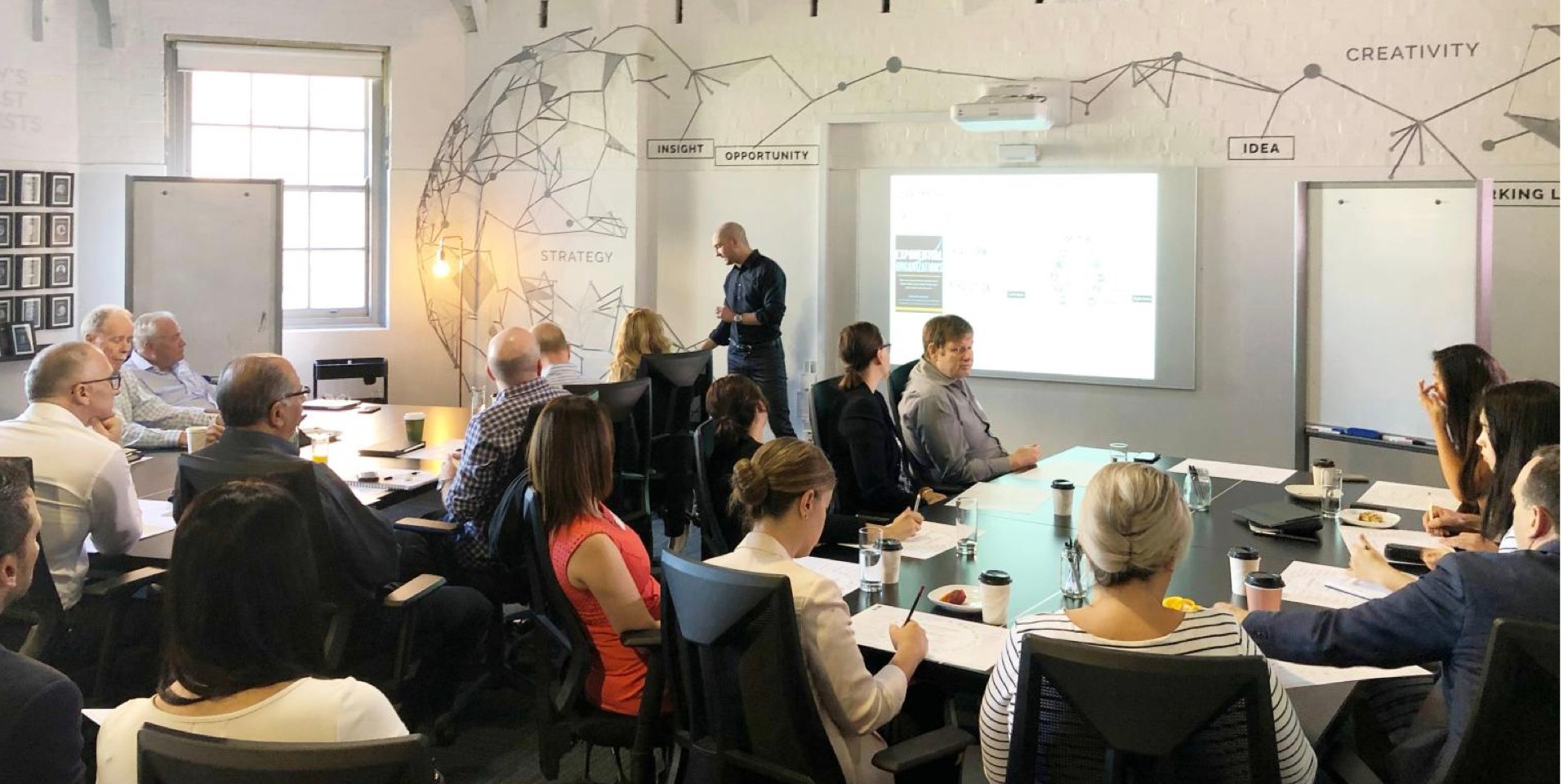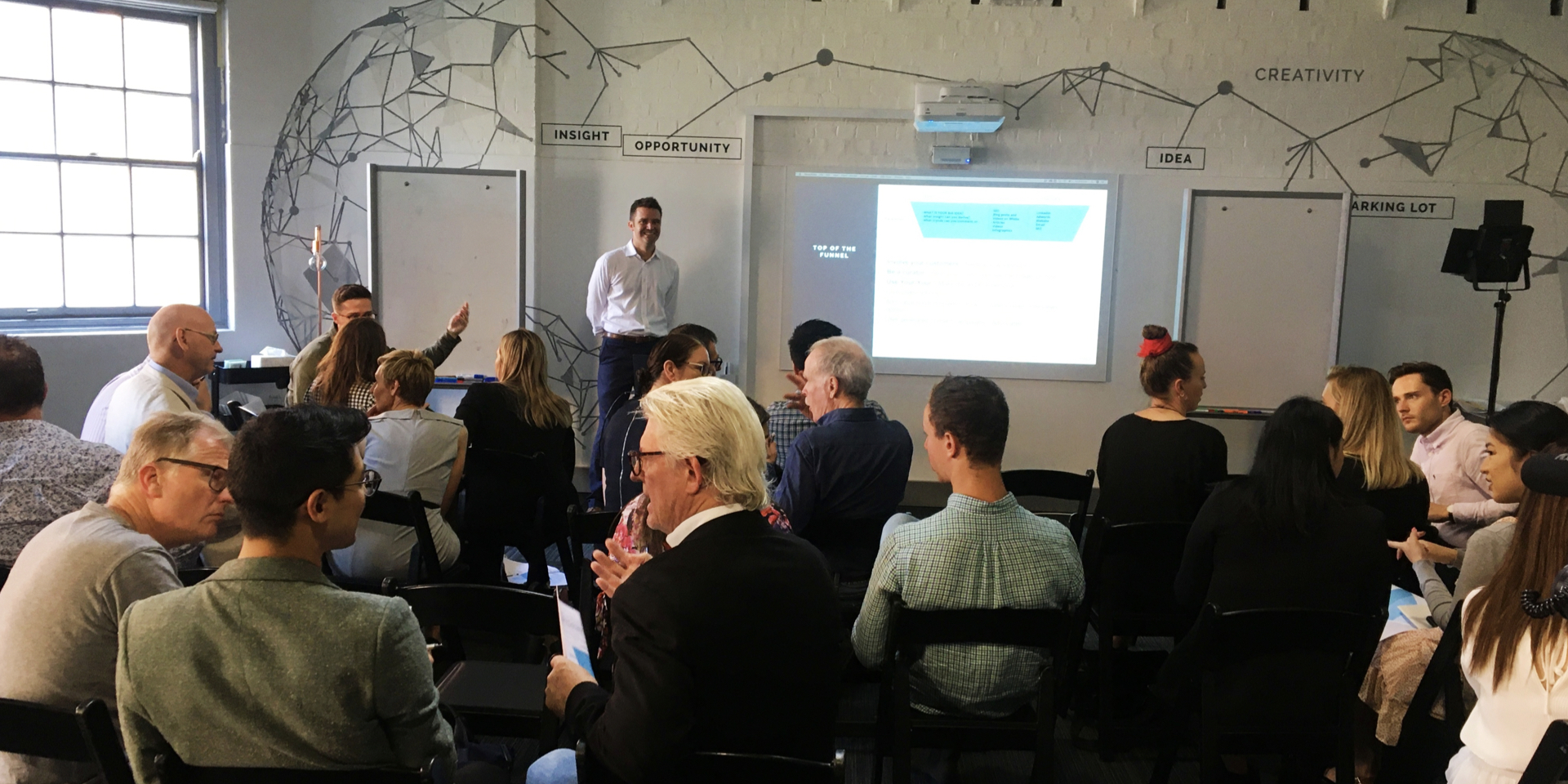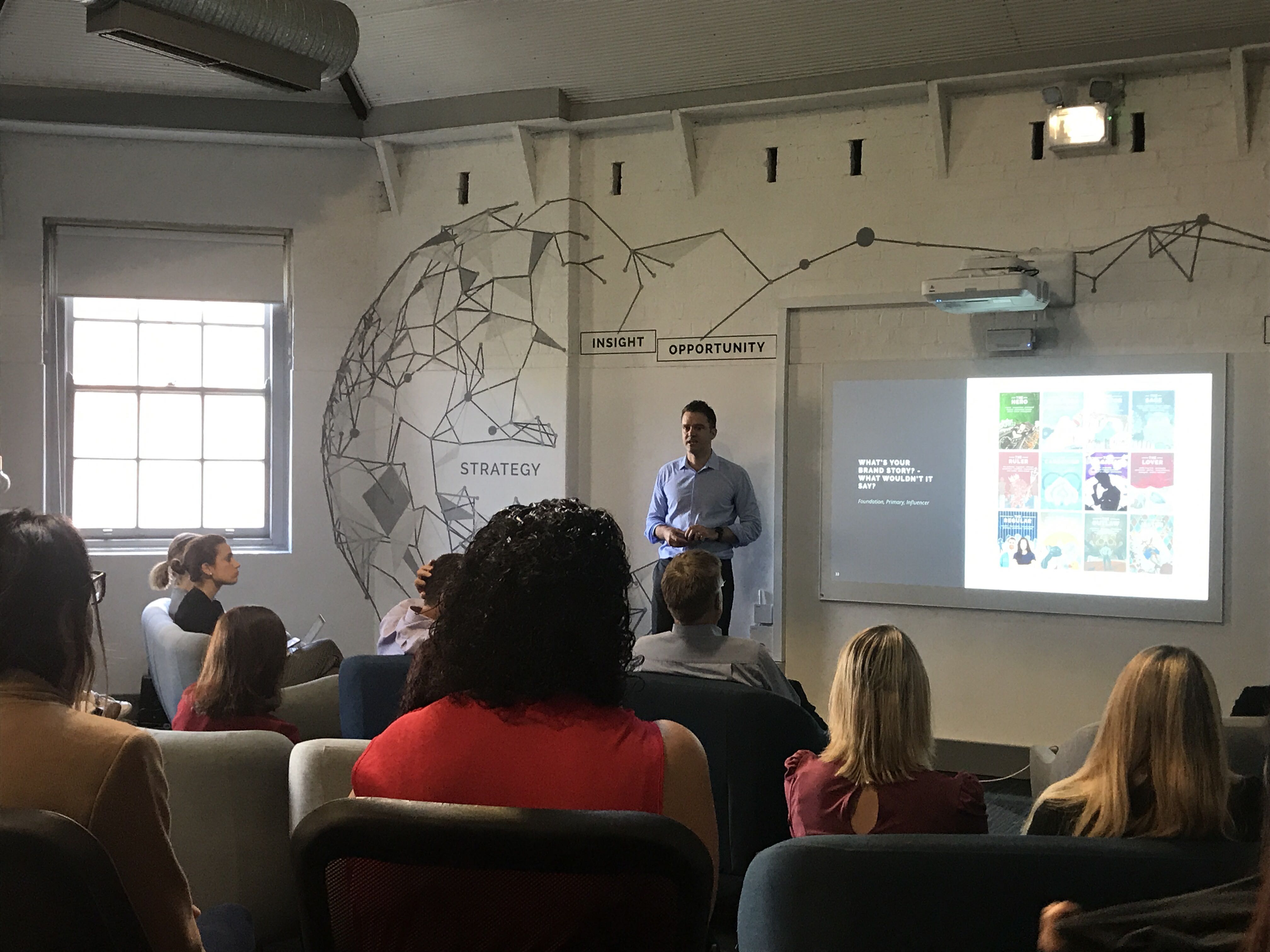Contrary to the thesaurus, being efficient does not mean being effective. There’s actually a big difference between the two. In fact, oftentimes, highly efficient people can be ineffective in their pursuits.
Let’s say you have a to-do list, and it contains various tasks, from the checking emails to writing proposals. At the end of the day, you managed to complete all these. You are being efficient. But it turned out that the proposal you wrote for one client had missed a critical information, causing your company to lose that client — all because you needed to rush to your next meeting so you can tick that task as well. You were not able to achieve the results you want for your tasks. You are being ineffective.
Peter Drucker’s statement clearly describes the difference of these two ideologies:
“Efficiency is doing things right; effectiveness is doing the right things.”
Based on the example above and this definition, it’s clear that it’s important to master effectiveness — both in your life and in your workplace.
First Things First: What Makes an Effective Leader
Effective executives, according to Peter Drucker in Harvard Business Review, follow these practices:
- Ask, “What needs to be done?” Asking this question is crucial for your success as a business leader. The answer to this question often involves doing more than one urgent task, but effective leaders know to tackle one or two at a time. After asking this question, plan your priorities and stick to them.
- Ask, “Is this the right thing for the enterprise?” In making decisions for the business, it should be made primarily for the good of company, not for individual stakeholders — because what’s good for the company is eventually good for its stakeholders.
- Develop action plans. Effective executives are effective doers. Carefully plan your course and envision your desired results.
- Take responsibility for decisions. When you execute your plans, own the decisions that go along with it.
- Take responsibility for communicating. Share your plans with your colleagues, ensure they understood, and ask their thoughts surrounding your plans.
- Focus on opportunities. Focusing mainly on problems and solving them do not produce results. Effective leaders know that problem solving prevents damage. So instead of focusing on problems, take advantage of the opportunities.
- Run productive meetings. To be effective, meetings need to be work sessions, not bull sessions.
- Think and say “we” rather than “I.” You may have the ultimate responsibility, but you only have authority because you have the organisation’s trust. This means placing the organisation’s needs before your own.
Effectiveness at the Organisation Level
At Step Change, effectiveness is part of our Step Change in Action values, our guide to making smart decisions.
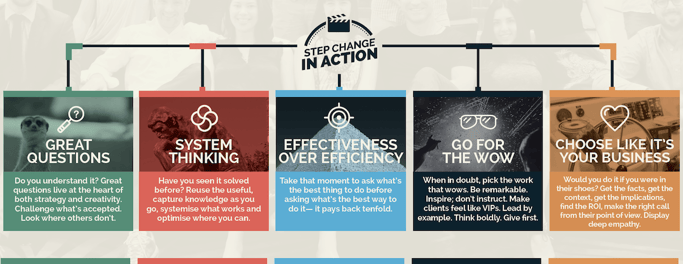
By having the values upfront and on display, it reminds staff of the types of behaviours that are valued in the workplace, and it reminds everyone to find out first what’s the best thing to do before asking what’s the best way to do it.
Here are ways to cultivate the culture of effectiveness.
- Ensure everyone in the organisation understands your purpose. An effective organisation has identified and embraced a clear, meaningful purpose. This helps employees see the business as a group with a unified message. In 2002, the Drucker School of Management discovered that companies whose purpose is “deliver value to customers” was more profitable over a ten-year period than those whose goal was just to provide returns for the shareholders.
- Encourage your team to interact. Teams that have more positive interactions tend to perform better than those that have more negative interactions. So encourage your team to appreciate each other, to smile often, to high-five more often.
- Build resilience in teams. In disruptive business environments, rules are constantly changing, and the best thing leaders can do is instill resilience in teams. And this requires short-term inefficiency for long-term effectiveness.
Related topic: Unpacking Resilience
- Focus on results. Focusing on the outcome makes it clear for you and your team the intended result you need to produce.
- Optimise your company’s processes. Take a look at the way things are done in the business. Are there any unnecessary duplicate efforts that are better off eliminated?
Mastering the art and building a culture of effectiveness in your workforce will produce stunning effects: key talent retention, high productivity, ability to make solid decisions, enriched employee motivation, and success in change management initiatives. In what ways have you encouraged effectiveness in your workplace? Share to us in the comments section below.
Leadership is defined by results not attributes.
— Peter Drucker, father of modern management
NOW WATCH: 2 Minutes On Effectiveness Over Efficiency
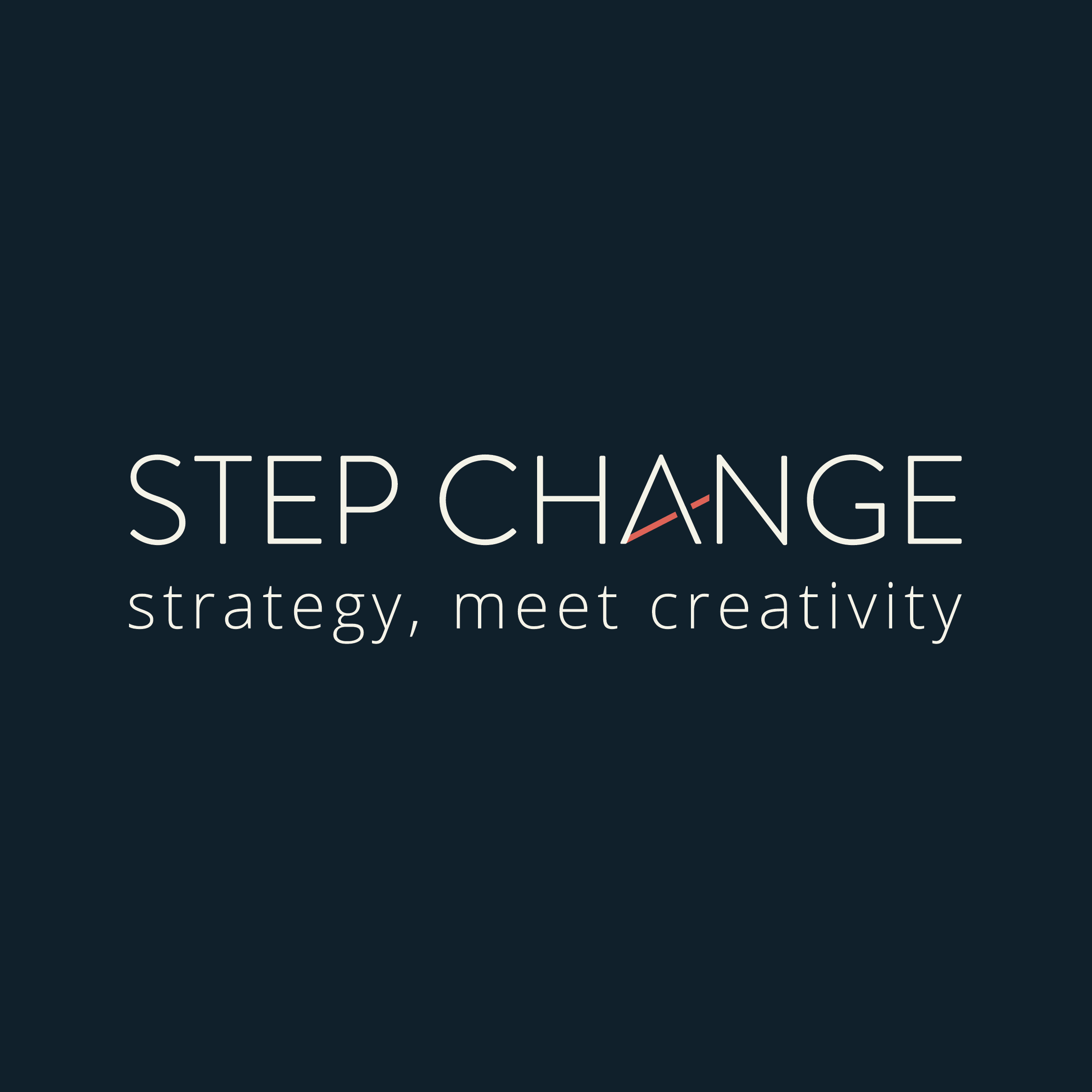




![Top 10 Articles C-Suites Read in the Step Change Blog [2019 Edition]](https://blog.hellostepchange.com/hubfs/step-change-top-10-articles-2019.001.jpeg)
